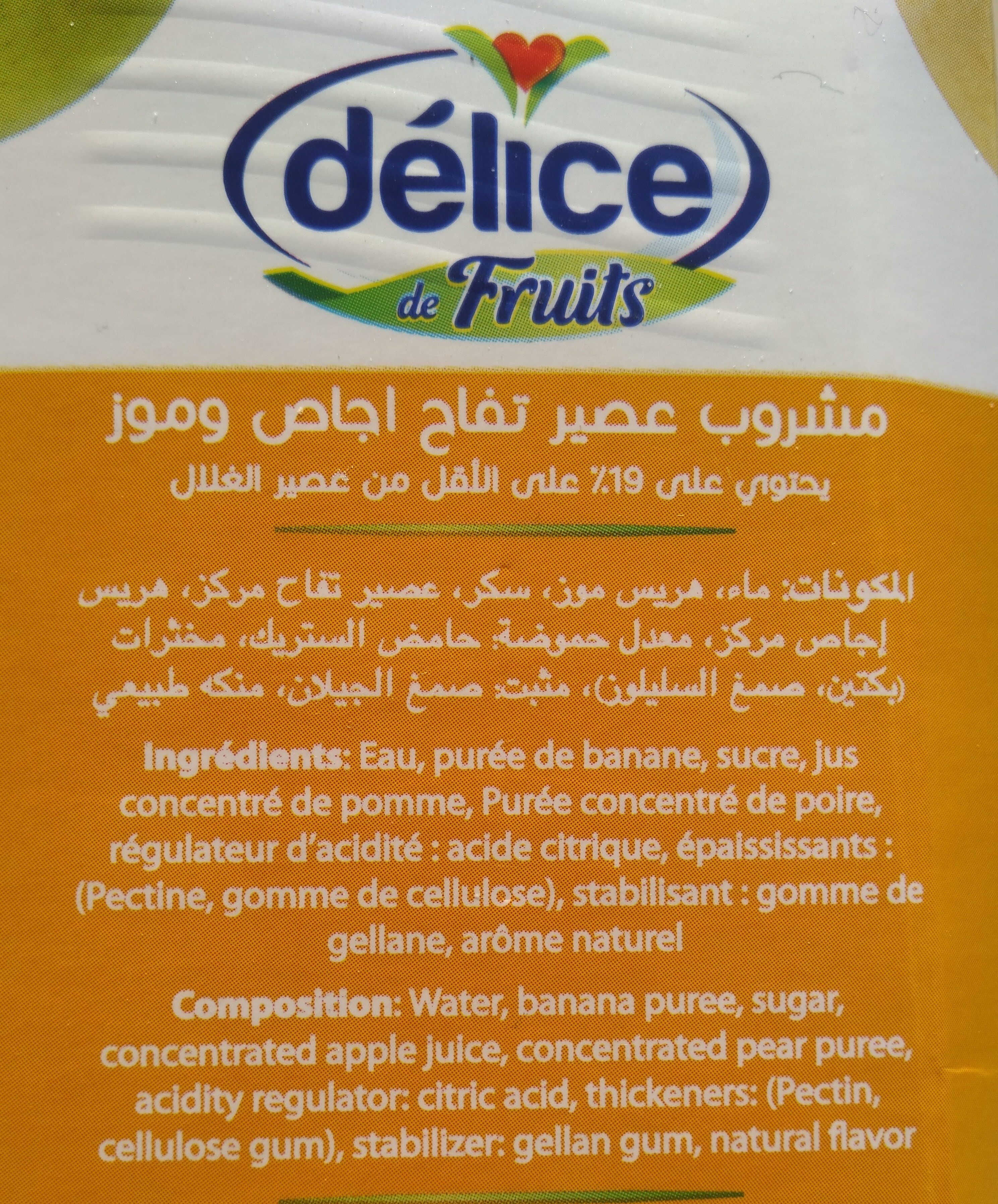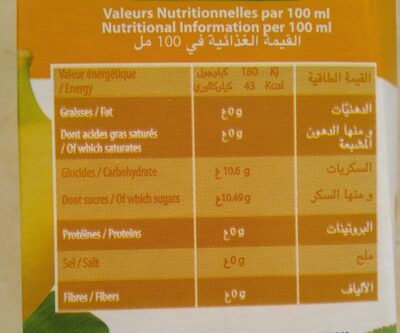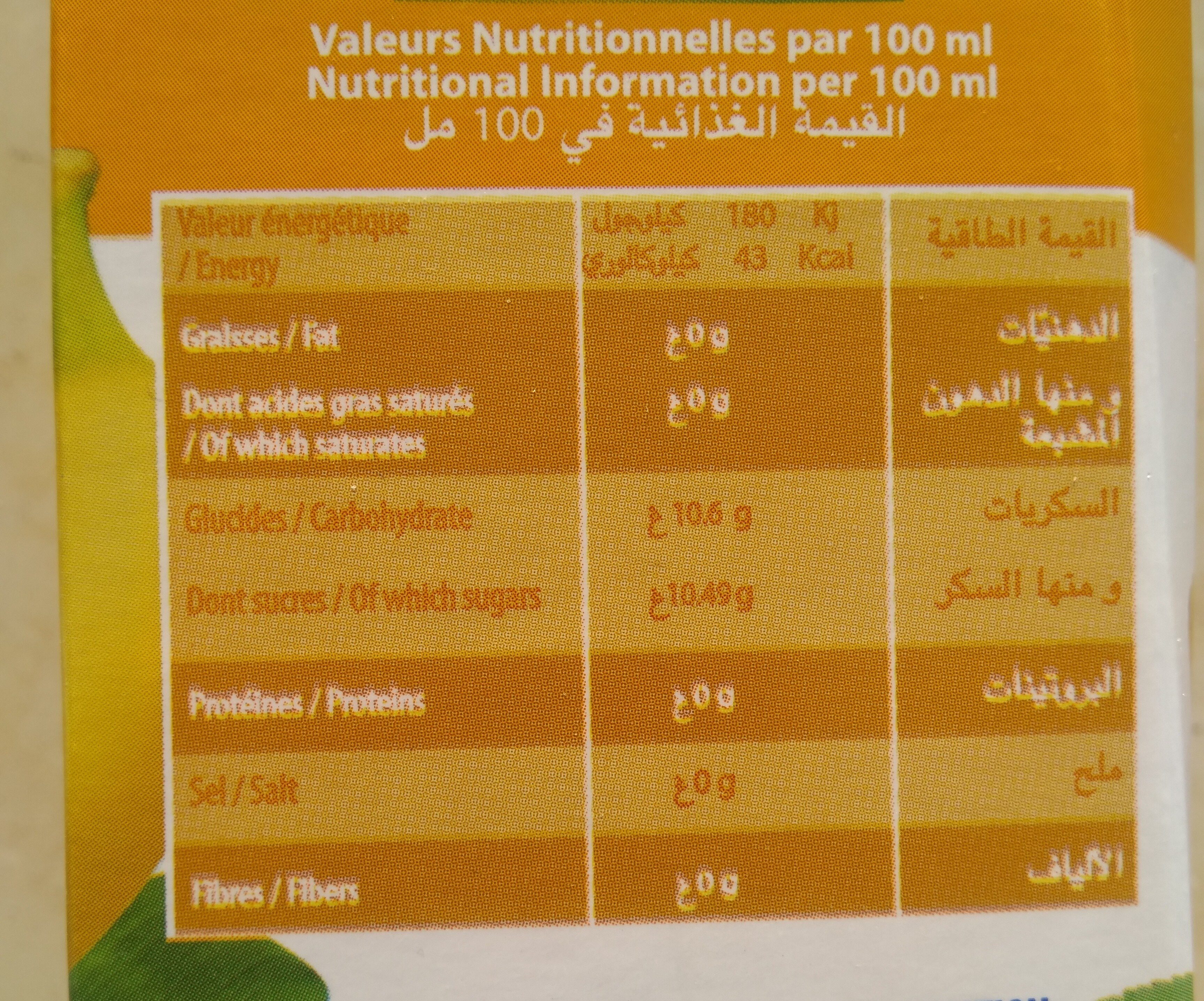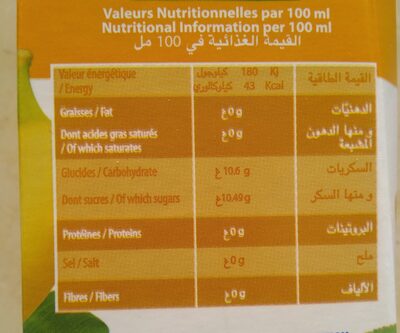Boisson au jus fruits blancs - Délice de fruits - 1 L
This product page is not complete. You can help to complete it by editing it and adding more data from the photos we have, or by taking more photos using the app for Android or iPhone/iPad. Thank you!
×
Barcode: 6191534802186 (EAN / EAN-13)
Quantity: 1 L
Packaging: Elopak, Multilayer-composite, Pure-Pak, Brick, Pure-Pak Sense
Brands: Délice de fruits, Délice
Categories: Plant-based foods and beverages, Beverages, Plant-based beverages, Fruit-based beverages
Labels, certifications, awards:
FSC, FSC Mix
Origin of the product and/or its ingredients: Made in Tunisia
Manufacturing or processing places: Tunisie
Traceability code: FSC-C081801
Countries where sold: Tunisia
Matching with your preferences
Report a problem
Data sources
Product added on by kiliweb
Last edit of product page on by gmlaa.
Product page also edited by guezguez-majed, off-tn, roboto-app, yuka.UnI0T01vZFordlk2b1BBUDBSajArZDliNmIyS2VsMjBJTU02SUE9PQ, yuka.sY2b0xO6T85zoF3NwEKvlhBcCobkgWyfFyPQh2qo1sapAKXPPYtL0tHEa6s.












